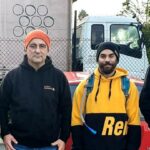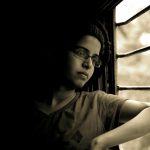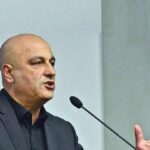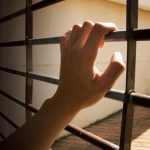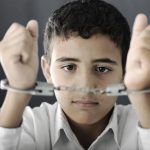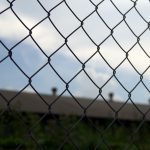Judge Declares Banksia Hill Kids Prison Dehumanising, as Class Action Mounts
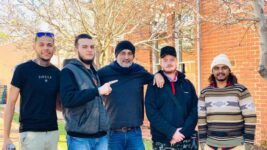
As a 15-year-old boy came before the WA Children’s Court, it was heard that during his time in the state’s only child prison, Banksia Hill, he’d been kept in a tiny isolation cell with an observational wall for 79 of 98 days – 33 without a required 30-minute break – over the summer, during a heatwave.
“When you treat a damaged child like an animal, they will behave like one and if you want a monster this is how you do it,” said District Court Judge Hylton Quail on 10 February, as he sentenced the boy with compulsive brain damage to a 12 month community order, as it was safer than being inside.
Quail, the president of the WA Children’s Court, handed down the burglary-related sentence just a month after he permitted a 17-year-old youth to serve his 14-month term in Hakea adult prison, after he’d been subjected to multiple lockdowns during his time on remand at Banksia.
The WA District Court judge outlined that conditions in the child facility had worsened of late due to staff shortages during the pandemic, but a class action against Banksia Hill launched mid-last year suggests the prison has long been a centre of human rights abuses.
Indeed, Banksia Hill Detention Centre is Western Australia’s Don Dale, where kids as young as 10 – 74 percent of whom are First Nations – are separated from community supports to be “treated like animals” by the government-maintained system.
A rare admission
“Judge Quail has effectively called out Banksia Hill as an abysmal failure, that’s not fit for purpose, that degenerates children to their worst selves, that’s not rehabilitative or restorative, that’s a den of cruelties leaving children worse off,” said Social Justice Independent Gerry Georgatos.
“They leave Banksia Hill worse than when they go in and, therefore, pose a greater risk to themselves and society,” he told Sydney Criminal Lawyers.
And he ought to know, as coordinator of the National Suicide Prevention and Trauma Recovery Project (NSPTRP) he was called into the centre last September to help deescalate a riot, and he noted the number of kids being subjected to the Intensive Support Unit (ISU) isolation cells.
Georgatos further stressed that a figure like the Children’s Court president publicly calling out the state government on how it’s overseeing the running of the facility is a rare occurrence, especially as Banksia Hill has such close links to the institution he presides over.
“These are our most vulnerable children, many without parents, half of them, in fact, in the care of the state, and failed big time by both Child Protection and Corrective Services,” he added. “There’s negligible nurture in Banksia Hill but there’s heaps of the punitive.”
“Fishbowl” cells
Established in 1997, Banksia Hill Juvenile Detention Centre is situated in the southern Perth suburb of Canning Vale. And while Australian authorities prefer to use euphemisms when it comes to locking up kids, Banksia is basically a child prison used to detain 10 to 17 year old inmates.
Following a May 2017 riot involving seven child prisoners, the ISU was established as a means to provide problematic kids with a full support regime, but in reality they received less programs. And not all the children in ISU are stuck in the “fishbowl” cells, where they can be constantly observed.
“ISU is referred to by some of the guards and by the child prisoners as ‘the cage’”, Georgatos said. “Small cells, which some children can touch both walls if they spread their arms – this is how small these cells are. Dark on the inside, little light, and food with no utensils, eating with their hands.”
The SJI candidate explained that placing a child in the ISU is supposed to be court ordered, yet this requirement is not always being followed, and neither are conditions that require children must be allowed out of the small cells for allocated periods to exercise daily.
Suing over mistreatment
The Social Justice Independents and NSPTRP are launching a class action against the Banksia Hill facility and the WA state government. The case is being led by Levitt Robinson Solicitors, and it already entails 530 testimonies from past detainees outlining human rights abuses at the prison.
Georgatos recalls that close to a decade ago the current WA Labor government, when in opposition, slammed the child prison, warning it was “a powder-keg waiting to explode”, but since he took office five years ago, WA premier Mark McGowan actually oversaw the ISU establishment.
“We launched the class action because on top of the redress to the affected, we want to compel social reforms, a suite of humane alternatives, ensure nurture and a better shot at life for our most vulnerable children.”
The long-term suicide prevention advocate further set out that rather than sending young offenders to prison with the deprivation of liberty being the punishment, the authorities are sending these children to face degradation and harm in a facility with a dearth of any rehabilitation or restoration.
The greater reforms
Since the other two rulings, Georgatos advised, Judge Quail has sentenced a 16-year-old who was convicted on a serious arson offence to a 12-month community order, as he determined the youth would have more chance at rehabilitation on the outside than inside the “Banksia dungeons”.
Although, according to the SJI candidate, who’s running for the Senate in the coming election, Banksia reflects a broader problem with Australian youth detention, and he’s calling for all seventeen child prisons nationwide to be closed down.
Georgatos recommends a system where the focus is on supporting vulnerable youths in the community with substantial outreach supports and mentoring, and this system should be extended to ensure their parents and carers receive any assistance or counselling they may need.
“I’ve worked with thousands of vulnerable people and what I describe is what works best. Society needs to heed,” the social justice advocate said in conclusion.
“In 2019, the Australian Senate voted against raising the age of criminal responsibility from 10 to 14. The Senate is supposed to be the heart and soul of the nation.”


